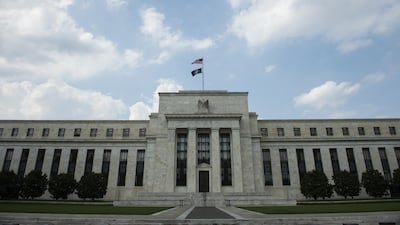Monetary-policy specialists are furiously exploring ways to improve central banks’ effectiveness, particularly should economies fall into a recession — a risk heightened by the coronavirus’s cascading economic stop. The underlying policy motivation is the growing recognition that prolonged and excessive reliance on central banks has reduced the power of both conventional and unconventional measures; it has even risked making them counterproductive. The hope is to come up with new tools to reverse this worrisome and accelerating phenomenon.
As important as this work is, I am worried that basic misperceptions risk making it unsuccessful when central banks face growing pressures both from within and without. To understand why, let’s look at this through the prism of game theory.
Key elements of any game — that is, strategic interactions between two or more participants — include the characteristics of the players, strategies and payoffs, information availability and the status of trust, cooperation and rationality. Good players choose their best strategies understanding what others are likely to do under a given set of conditions. Outcomes vary from destructive non-cooperative games to so-called Pareto optimal ones, in which a player is better off without any other being worse off.
For years, central banks had dominant strategies, using interest rates and forward guidance to press others to respond in ways that helped meet the banks’ economic and financial objectives. They informed and influenced the behaviour of a broad range of economic actors and, sometimes, even directly imposed outcomes. This was seen in the smoothing out of business cycle extremes and, most vividly, in overcoming the 2008 financial sudden stop that was on the verge of tipping the global economy into a damaging multiyear depression.
In recent years, however, the strategies of systemically important central banks such as the Bank of Japan, the European Central Bank and the Federal Reserve have not been as effective, with repeated failures to meet one or more of their stated objectives. This is due in large part to what can be thought of as changes in game conditions.
Central banks appear to have less of an information edge. Combined with challenged analytical models, this has translated into repeated errors in growth projections and an underappreciation of the risk to financial stability because of pockets of excessive risk-taking among nonbanks, especially when it comes to liquidity risk. Repeated game conditions that once anchored central banks’ effectiveness now threaten to expose more shortcomings relative to objectives. No wonder central bank strategies are transitioning from “dominant” to “dominated,” especially with respect to markets that now feel more empowered to force the banks’ policy hand.
Policy adaptations under discussion to bolster inflation expectations range from expanding the use of unconventional policies to raising objectives — both directly and through flexible inflation targeting. Unfortunately, the first is a troubling sign of active inertia — realising that something different is needed yet doing more of the same. The second fails to counter the strong disinflationary effects of both structural changes to the economy and demand deficiencies.
More out-of-the-box adaptations include making monetary policy subservient to fiscal stimulus and directing central banks to pursue so-called helicopter money or people’s QE, which provide direct cash handouts to large segments of the population. Even if shown to be technically and politically feasible, these carry high risks of collateral damage and unintended consequences.
This difficult quest for a magical solution may well indicate a more critical issue: an incorrect analytical framework. By the very nature of their construct and role in a modern economy, central banks are poorly equipped to turn around what leads to persistently low demand and productivity. Continuously ignoring this inconvenient truth only serves to undermine their institutional integrity and credibility. The solution exists, but it is in the hands of other policy-making bodies that need to directly address issues such as labor training and retooling, inequalities and fiscal incentives.
Looking for new central bank tools will remain an intellectually interesting exercise but ultimately a futile one if the context is not changed. After all, let’s not forget Brian Christian and Tom Griffiths’s simple yet powerful insight: “Well, if the rules of the game force a bad strategy, maybe we shouldn’t try to change strategies. Maybe we should try to change the game.”
Bloomberg

